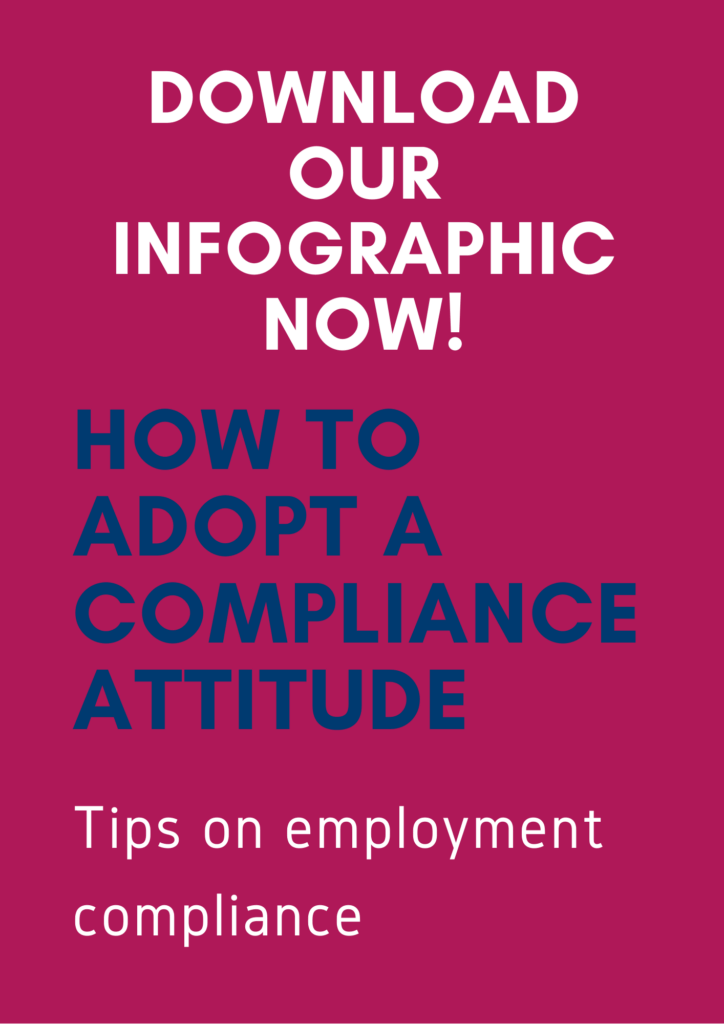As Australian employment law develops, it becomes harder for employers to keep up with it. Employees are becoming more aware of their workplace rights too. Therefore, employers must ensure that they understand their obligations when it comes to dismissing employees, reducing the risk of an unfair dismissal or other claim, such as a General Protections claim.
It is clear through the latest Fair Work Commission (FWC) reports that the number of unfair dismissal claims (and claims in general) is increasing. The avenues to raise a dispute or concern are more readily available to employees than they were previously. Furthermore, governing and regulatory bodies are becoming more vigilant when it comes to pursuing employers who are exploiting their employees.
Here is a comprehensive guide on Unfair Dismissal. Make sure you know exactly what constitutes unfair dismissal and how you can avoid them.
Jump to a section
What constitutes unfair dismissal?
What is the minimum employment period?
The 5 fair reasons for dismissal?
Harsh, unjust, and unreasonable. What is it?
Unfair dismissal vs. general protections. What’s the difference?
What is the Small Business Fair Dismissal Code?
Avoiding unfair dismissals when buying a business.
Can casual employees claim unfair dismissal?
What constitutes unfair dismissal?
An unfair dismissal is where the Fair Work Commission considers a dismissal to be harsh, unjust, or unreasonable. A redundancy that isn’t genuine can also be an unfair dismissal. Employees can apply to the Fair Work Commission if they feel their dismissal was unfair, and they meet the other eligibility criteria.
Employees must submit a form and pay a smallish fee in order to file an unfair dismissal application. Employers are then notified of the employees’ application, given the chance to respond and to start the formal process of trying to resolve an unfair dismissal application. The remedies sought in an unfair dismissal process most commonly include financial compensation, but can also include reinstatement, a statement of service, an apology, or a combination of the above.

Unfair dismissal cases in Australia.
According to the FWC’s 2020-21 financial year report, unfair dismissal applications made up 44.8% of the total applications they received. This equated to 13,289 unfair dismissal applications and a total of 29,631 applications lodged overall. In previous years, 76% of the unfair dismissal cases involved monetary compensation paid to the ex-employee by the employer.
Generally, employers find it easier to reach a monetary settlement at conciliation as they are fearful of legal costs or aren’t confident they have followed the correct procedure. Take a look at some of the more amusing unfair dismissal claims here.
The maximum payout for unfair dismissal.
The maximum payout for unfair dismissal in Australia is half the amount of the high-income threshold, which as of 1 July 2022, is $162,000. Therefore, the maximum payout is $81,000. Each financial year this amount is updated.
This figure is updated at the beginning of each financial year, so it can be assumed that come 1 July 2023, the maximum payout for unfair dismissal will have increased.
If you want to get a better understanding of how the compensation awarded by the Fair Work Commission is calculated, take a look at the FWC’s Calculating Compensation page.
What is the minimum employment period?
The minimum period of employment is the period an employee must have been employed for before they are dismissed, to be able to lodge an unfair dismissal application.
The minimum employment period depends on the size of the business:
- If there are 15 employees or more in the business, the minimum employment period is 6 months
- When the business has less than 15 employees, the minimum employment period is 12 months
If the minimum employment period is not satisfied, a general protections claim can still be accessed if the employee asserts they were terminated for exercising a workplace right or being discriminated against for factors such as race, religion, gender or age. This is because the minimum employment period does not apply to these claims.

Can you terminate employment during the probation period?
A probation period is a time frame traditionally set at the start of an employee’s tenure to alert the employee their suitability for the role is being assessed. The length of this period is generally from 3 to 6 months. Employees terminated within their probationary period usually won’t be able to file a claim for unfair dismissal, as they don’t satisfy the minimum employment period.
Some employers dismiss employees assuming they can do so without providing a reason, particularly during the probationary period. However, this isn’t true. Our advice is employers should always follow the correct procedures, regardless of the type of employee to limit the likelihood of a dispute.
The case of Pacheco-Hernandez v Duty Free Stores Gold Coast Pty Ltd (No.2) [2019] FCCA 1295 highlights this point. In this case, an employee in their probationary period was terminated ‘without reason’. The employee alleged that this was after they had raised complaints about their employment and assisted another employee with a Worker’s Compensation Claim and was, therefore, a breach of their General Protections rights.
This shows that all employees should be provided with a reason for their termination. Employers also need to review their reasons for termination to ensure they are not taking adverse action against an employee because they raised concerns about their employment, which indeed would be a breach of General Protections obligations.
Want to find out more about what employees are eligible to claim unfair dismissal? Click here.
What are the 5 fair reasons for dismissal?
Whilst Australia doesn’t have legislated “fair” reasons for dismissals, employees are protected from dismissal due to prohibited reasons covered by the general protections provisions.
The following 5 “fair” reasons for dismissal actually come from the United Kingdom’s legislation. Their 5 “fair” reasons for dismissal are:
- Conduct or misconduct
- Capability and performance
- Redundancy
- Statutory illegality or breach of statutory restriction
- Some Other Substantive Reason (SOSR)
Whilst Australia doesn’t have any specific legislative reasons permitting dismissal, there are many fair reasons for employees to be dismissed, such as where employees:
- Break the law
- Conduct themselves poorly at work
- Continuously have issues with their performance
- Are no longer needed in their role.
Prohibited reasons for dismissal are also outlined in the general protections provisions of the Act. Additionally, an employee cannot be dismissed in a manner that is harsh, unjust, or unreasonable (assuming they meet other criteria such as minimum employment period), or they can seek redress in an unfair dismissal application.
What is underperformance?
Underperformance is simply where an employee is not performing to the expected standards placed upon them by their employer. This can be in relation to how the employee performs the role or how they behave in the workplace. Underperformance can include, but is not limited to, things like:
- An employee not carrying out their work to the required standard or not doing their job at all
- An employee not following workplace policies, rules, or procedures
- Unacceptable behaviour at work
- Disruptive or negative behaviour at work
Underperformance becomes a bigger problem for the business if one employee’s behaviour starts to rub-off on, or distract, other employees. As a result, it is paramount that a business understands and manages underperformance immediately.
Want to find out more about terminating employees and how to avoid the risk and stress often accompanies the process? Click here!
Harsh, unjust, and unreasonable, what is it?
When determining the fairness of a dismissal, the Fair Work Commission makes an assessment as to whether the termination was harsh, unjust or unreasonable in the circumstances. To do this, the Commission must look at the following:
- If the employee’s capacity or conduct created a valid reason for dismissal
- Whether the employee was notified of the reason
- Whether the employee had the opportunity to respond
- If the employer refused to let the employee have a support person present at discussions leading to their termination
- If the employee had been warned about any underperformance prior to them being dismissed for it
- Had the employee been warned about underperformance prior to dismissal
- The level of impact that the size of the business had, such as the absence of dedicated human resource professionals
- Any other matters that the Commission considers relevant
Unfair dismissal case studies
In the case of Sclater v Transdev Harbour City Ferries Pty Ltd [2019] FWC 7968, it was found that the captain of the ferry fell asleep whilst operating the boat, handing the responsibility to the engineer. The captain argued that the medicine he was taking, due to a medical condition, had caused him to be drowsy. As a result of this, Sclater was dismissed from his role as the ferry master. The FWC found that the role as a captain/ferry master meant that Sclater must remain aware at all times, regardless of the circumstance, and thus the dismissal was upheld as fair.

Another case where the employer’s actions were considered unreasonable, was Camilleri v IBM Australia Limited [2014] FWC 5894, in which Mr Camilleri was dismissed after it was uncovered that he had made 141 improper expense claims for nights he wasn’t working. The FWC found that the dismissal was unfair as IBM failed to recognise the employee’s offer to repay IBM and his 17 years of service. Additionally, there was an excessive delay between the employee’s actions and the dismissal. As a result, the employee was awarded 50% of their lost remuneration.
Unfair dismissals vs. general protections. What’s the difference?
When looking at FWC claims statistics, unfair dismissal claims are much more common than general protections claims relating to dismissal. The Fair Work Commission reported that there were 16,558 unfair dismissal claims in 2019-20 compared to 4,823 general protections claims relating to dismissal.
What is the legislative difference between the two types of claims?
Unfair dismissals just look to see if an employee’s termination was harsh, unjust, or unreasonable. General protections claims must consider if an employee was terminated, or treated adversely, for an unlawful reason which is generally because they somehow suffered a loss due to them possessing some sort of workplace right.
Employee eligibility – When can they access the claims?
Unfair dismissals cover employees who have worked the minimum employment period, are covered by an award/agreement, or earn under the High-Income Threshold. General protections cover a greater range of people including current and prospective employees and independent contractors. There is also no minimum employment period or salary threshold for general protections. General Protections claims can relate to a case of dismissal or “adverse action” in the workplace.
Timeframes
For unfair dismissals, the employee must lodge an application within 21 days after the dismissal takes effect. Once the employee applies, the whole process might take up to as long as 6 months to be finalised.
Applicants for general protections claims also need to lodge an application 21 days after the dismissal or other form of adverse action takes place. In a GP claim situation, if the Fair Work Commission identifies that the Commission conference was unsuccessful, then the parties have a choice to either agree to letting the Commission arbitrate the dispute, or alternatively the person must make a court application within 14 days.
General protections cases can take anything up to 18 months to be completely resolved, as they can be more complex and also can end up with the Federal Circuit Court or the Federal Court itself.

Who has to prove it?
In unfair dismissals, the onus is on the applicant to demonstrate that the dismissal was unfair. In a general protections claim, the onus is on the employer to prove that the adverse action or dismissal did not occur due to a prohibited reason.
Results
Unfair dismissals have two main courses of action that can be imposed by the Fair Work Commission – either reinstatement and/or monetary compensation. If the employee’s annual wage exceeds the high-income threshold, then they can be compensated with up to six months’ pay.
General protections don’t have a cap on how much a successful applicant can be awarded. However, there are four remedies the Court can make:
- Reinstatement
- Compensation for economic loss
- Compensation for non-ecomomic loss
- Pecuniary penalties (fines to the employer)
Click here to see why you need to be protecting your business from general protections.
What is the Small Business Fair Dismissal Code?
Small businesses, defined as those with less than 15 employees working in a regular and systematic pattern, have different requirements when dismissing an employee.
Small businesses generally don’t have employees operating specifically in HR/ER management. This can sometimes lead to small businesses being more susceptible to unfair dismissal claims. To assist small businesses when dismissing their staff and avoiding any legal issues through a simplified process, the Small Business Fair Dismissal Code was developed under special provisions of the Fair Work Act. This Code provides small businesses with protection from unfair dismissal claims against them, providing that they follow the Code.
The Small Business Dismissal Code spells out the circumstances that would point to termination being fair, and the processes that a small business must follow, when dismissing staff.
Download the Fair Work Commission’s Small Business Fair Dismissal Code here.
The code’s process relating to ‘Summary Dismissal’ is for when an employee’s conduct is sufficiently serious enough to justify immediate dismissal.
This can include acts like theft, fraud, violence, and serious breaches of occupational health and safety procedures. For the dismissal to be considered fair, it is sufficient – but not essential – that the employer had reasonable grounds on which to report the employee to the police, and did so.
The process for ‘Other Dismissal’ is where an employer warns or cautions an employee that they are at risk of losing their job and unless they improve, they will be dismissed.
The employer must provide a reasonable period of time to allow the employee to improve their performance, and in some instances, the employee may need additional training to match the employer’s performance standards.
Want to find out more about the Small Business Fair Dismissal Code? Click here!
Avoiding unfair dismissals when buying a business.
Buying a business is hard enough due to all the due diligence obligations a business has to meet in order to protect itself. However, it is crucial to make sure the employment aspects are also dealt with, to avoid potential unfair dismissal cases as well as ensure it is understood who is going to be responsible for employee entitlements that may have accrued under the previous employer.
Transfer of business obligations
The transfer of employment obligations under the Fair Work Act 2009 mean that previous service with the old employer may be seen as continuous with the new employer, such as where an employee’s previous service is counted in relation to whether an employee qualifies to lodge a claim for unfair dismissal. However, this can be overruled if an employer advises the employee in writing that it will not recognise the prior service, before the employee commences employment with the new employer.
A recent case highlights some of the issues that an employer can face when a sale of a business takes place. In that case, the employee concerned was engaged in preparing food in a café that was sold.
After the sale of the cafe took place, the employee was terminated and then he was re-engaged on a casual basis whilst the café was being redeveloped. He then worked shorter hours of work and did catering work, until he was ultimately dismissed for alleged unsatisfactory performance by he new employer.

Section 384(2) of the Fair Work Act 2009 provides an exclusion from the qualifying period for an employee to be eligible to lodge a claim for unfair dismissal, if the new employer had informed the employee in writing that previous service with the old employer would not be recognised.
Unfortunately, the company involved in this case did not follow this simple step. They tried to argue that the role was substantially different in the hope that the transfer of employment provision was not applicable, but this was rejected and the employee was able to make an unfair dismissal application.
This highlights the simple step the new employer didn’t take and how you can avoid unfair dismissal cases when buying a business in some circumstances.
If you want to find out more about obligations when buying a business, click here.
Can casual employees claim unfair dismissal?
Casual employees can claim unfair dismissal if they satisfy the minimum employment period and also work on a ‘regular and systematic’ basis. This can often be different than what many employers understand about the nature of casual employment.
Employment is regular and systematic if regular offers of work are made by the employer and accepted by the casual employee when the employee has indicated they are available to work, but may also based on other factors such as when another employee is absent or sick and hence circumstances provide the casual with the opportunity to work more regularly.

Therefore, a casual employee will be eligible to claim for an unfair dismissal if they have:
- worked the necessary minimum qualifying period,
- been employed on a regular and systematic basis, and
- a reasonable expectation of ongoing employment.
If they do not meet these requirements, yet feel they were dismissed for a prohibited reason, they are still able to file a general protections claim.
It is evident through this guide that unfair dismissals, and employment law in general, can be quite complex matters. Ideally, through reading this guide, you will now think twice before dismissing employees, as well as hopefully seek advice before taking action. We understand that not everyone will have the training necessary to know how to respond to every situation that may lead to potential dismissal.
If you are looking for advice on complying with employment law and protecting your business from unfair dismissal claims, ER Strategies can help. We have highly experienced consultants ready to assist you.
We won’t tell you the 100 things you can’t do, rather we’ll give you proactive and practical strategies you can use, without comprising the commercial viability of your business. Our WorkShield services offer great support to businesses of all sizes. Click here, or on the image below, to take a better look at the service.




